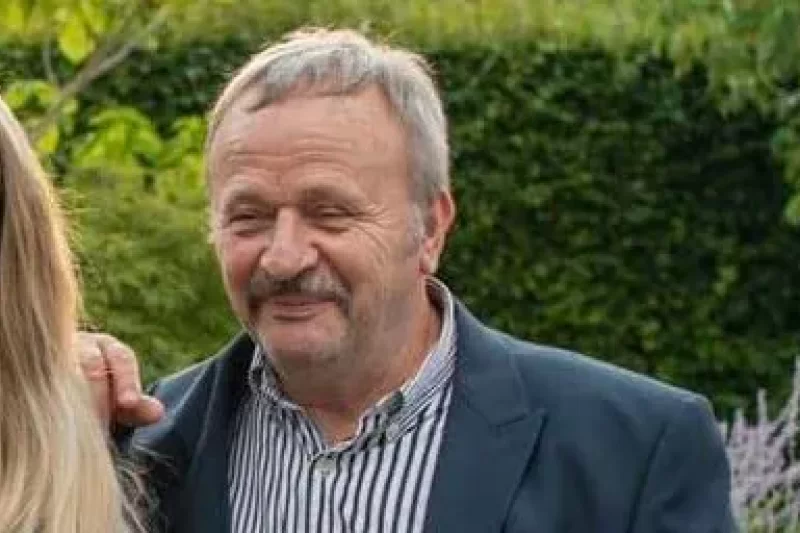Albanian Murderer Wins Right to Stay in UK Under ECHR
An Albanian wanted for murder in his home country has won the right to remain in the UK under the European Convention on Human Rights.
Fatmir Bleta, 64, left Albania two months after allegedly shooting a man in the head with a Kalashnikov rifle, for which he was convicted and sentenced in his absence to 13 years in prison.
He came to Britain with his family and sought asylum by falsely claiming to be Kosovan, a deception for which he was jailed for 33 months and two weeks in 2018.
Bleta, who has four children, successfully fought off an extradition attempt by Albania to serve the sentence by claiming he would not be entitled to a re-trial and was not told of the proceedings in advance.
In a new judgement – revealed in documents seen by the Telegraph – Bleta has succeeded in resisting an attempt by the Home Office to deport him on the grounds that it would breach his Article 6 rights to a fair trial under the ECHR.
Deportation ‘unduly harsh’ on family
He also appealed under Article 8 of the convention that deportation would breach his right to a family life as it would be “unduly harsh” on his loved ones.
The case comes after The Telegraph disclosed earlier this week that an Albanian criminal who sneaked back into Britain after being deported won the right to stay because deporting him would be “unduly harsh” on his family and breach the ECHR’s article 8.
It sparked fresh calls for the UK to quit or seek reform of the ECHR. Robert Jenrick, the former immigration minister and Tory leadership contender, said: “Yet again the ECHR has been used by activist judges to prioritise the rights of a criminal over the safety of the British public.
“It’s a disgrace. We will only be able to get the thousands of dangerous foreign criminals out of our country if we leave. Reform is a fantasy. It’s leave or remain – I’m firmly from leave.”
Kemi Badenoch, the shadow housing secretary and Tory leadership rival, said the Government should be prepared to quit the ECHR if necessary but warned that such a move alone will not solve the migrant crisis.
The Telegraph has also established that two of Bleta’s children have been convicted and jailed for drug offences. Son Dorian, 37, is serving an 18-year prison sentence for trafficking cocaine while daughter Sara, 28, a former actress, was jailed for four years for supplying class A and B drugs.
Bleta came to the UK in 1998 following the alleged murder in September of that year, before being sentenced to 13 years that December.
He was working as a guard at a reservoir when he and his colleague were approached by a man they knew, according to court documents.
The colleague allegedly witnessed Bleta pointing the Kalashnikov at the victim, who told him not to play with the gun. He is then said to have pulled the trigger and shot him in the head, according to the documents.
On arrival in the UK, Bleta falsely claimed to be a Kosovan refugee and was joined by his wife and children in 2000. Although they were refused asylum, they were granted indefinite leave to remain.
He gained British citizenship in 2017 but was convicted of making an untrue statement to procure a passport the following year, along with three other counts of dishonesty. He was jailed for 33 months and two weeks.
Judges reject extradition
Judges rejected an extradition request by Albania on the basis that he was never arrested and that there was “no material to show that he knew, or should have known, of the date and place of his trial and that the trial might proceed in his absence”.
They also accepted that there was not “sufficient assurance” that Bleta would receive a re-trial or a review amounting to a re-trial, which meant there was a “real risk” that returning him to Albania would be a “flagrant” breach of his article 6 ECHR rights to a fair trial.
After completing his jail sentence in 2018, the Home Office sought to deport him. His legal team then claimed it would violate his right to a family life under the ECHR.
In a final upper tribunal case in September, two judges accepted that Bleta had not deliberately “absented himself” from Albania to avoid the murder trial and “could not access a retrial”.
They rejected the Home Office’s deportation appeal because they said there was a “real risk that returning the claimant would amount to a flagrant breach of Article 6 ECHR”.
Contacted by The Telegraph at his home in west London, Bleta admitted to arriving in the UK in 1998 but denied being convicted of murder. Instead, he claimed he had been cleared of the crime in multiple courts.
“I’m clear of everything,” he said. “In courts, both the courts, I am clear. You are wrong, you check it. Clear here, clear Albania, everything.”
Asked if he explicitly denied the murder, he replied: “No, no”.
His daughter said: “The facts are completely wrong. My father was cleared for that [the murder]. He was blamed for it and this came out, if you actually look at the paperwork and documentation, which I can send you, he was cleared for that.
“He wasn’t even in the country when it happened. He was not in the country at the time.”
She added: “My dad is very sick and the only reason he ever had a deportation order is as a result of the Home Office being incapable of doing their job they have suffered above and beyond.
“The Royal Court of Justice did rule my father did not know of any crime committed and that’s the reason he was cleared.”
A Home Office spokesman said: “It would be inappropriate to comment while there are ongoing legal proceedings.”
(Source: The Telegraph)













